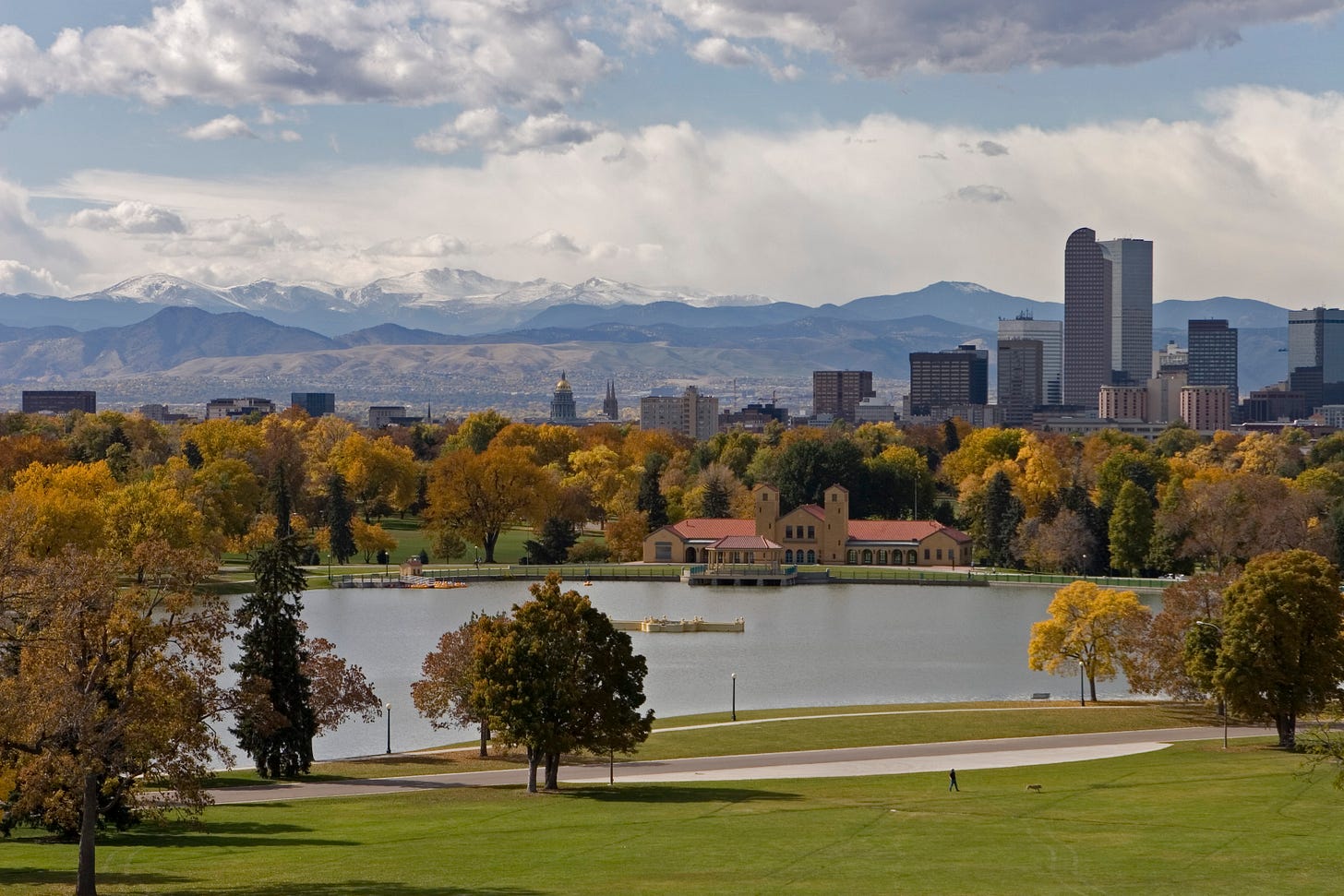The future of journalism
Also, why Colorado Democrats are so interesting and my Gen Z news diet

As we mentioned earlier in the week, our Writing Fellow Halina Bennet is answering your questions for today’s mailbag. But before we get to Halina’s answers, I wanted to flag the launch of the Searchlight Institute, a new think tank focused on the pathologies of the progressive N.G.O. Borg and the need for independent thinking, themes that should be familiar to Slow Boring readers. Specifically, I want to note their fellowship program, which will provide funding and logistical support for new policy development. Their initial cohort is fantastic, but since they were selected while Searchlight was in stealth mode, it mostly consists of people who were already in the founders’ network. One of the institute’s premises is that there are smart people with good ideas all around the country who are not currently plugged into mainstream networks — the institutions that dominate public discourse but have grown stultified and conformist. Searchlight thinks Slow Boring’s readership is full of the kind of people they want to reach, so please consider applying to the program or sharing this opportunity with people you know.
— Matt
Matthew: In non-specific terms are fine, but what other opportunities were you seriously considering before coming onboard to Slow Boring, and what made you opt to take a position at a small newsletter over a more established outlet or organization (if any)?
Before I joined Slow Boring, I spent about a year and a half at a very well-established outlet. During that time, I learned how large, legacy newsrooms function, and I met brilliantly talented, generous reporters and editors who gave me a tremendous education. But opportunities to write, for someone in my junior position, were few. Development heads (who were clear that advancement from my role was almost unheard of), editors, and reporters all gave me the same advice: Find any job that would let me write.
That advice pushed me to think seriously about what kind of newsroom I wanted to join next. I imagined returning to a local or regional newsroom somewhere in the country — anywhere, really — and reviving the daily reporting rhythm I’d been missing.
During college and the summer after, I interned at two small newspapers. I absolutely loved those experiences: I was in the communities I covered every day, reporting on multiple stories at any given time. But the job market for those positions has only gotten tougher, and the kind of newsroom I envisioned myself working in is becoming rarer. That made me think about where the future of journalism lies.
I’ve read Slow Boring for years, admiring Matt’s clear point of view, his fearless perspective, and his commitment to well-informed, practical solutions. When Kate posted an editorial assistant position, I decided that it might be time to explore a third approach to journalism. She ended up offering me an entirely different role than the one advertised, and it felt like the kind of unique opportunity that wouldn’t come up again: the chance to report freely and regularly, to develop my writing, and to build stamina. I don’t want to be an opinion columnist, and I’ve never written for an explicitly political outlet, so the opportunity to contribute a news element here felt like an exciting way to join something that has momentum and a dedicated purpose.
Since I’m still a relatively new part of the team, this feels like a good time to clarify why I’m here. I know that none of you subscribe to Slow Boring for my takes, and I like it that way. I was brought on to the team to add a daily news element that hopefully beefs up the content you as a subscriber receive. I invite you to treat those daily posts just as you did the discussion threads before I came on, or, if you welcome the added bit of reporting, I hope it helps contextualize some of Matt’s writing or provides some new information to inform your own conclusions. I’ve really enjoyed writing for Slow Boring so far, and I have some longer-term reporting projects coming up that I am excited to have the chance to work on. You are always welcome to unsubscribe from the Evening Edition of Slow Boring, but I hope that, if you are currently a free subscriber, you consider upgrading to paid so that you can join us for those nightly discussions.
Davis: You are presumably preparing for a career as a journalist, a profession whose obituary has been written with more and more urgency over the past 25 years. What gives you faith that journalism will remain a viable career over the next 30 years? Maybe a better frame for this is, how do you see journalism making the world a better place in 20 years, and what do you hope your role in the space looks like?
I think that journalism will exist in 30 years. At least, I hope it does.
Keep reading with a 7-day free trial
Subscribe to Slow Boring to keep reading this post and get 7 days of free access to the full post archives.

